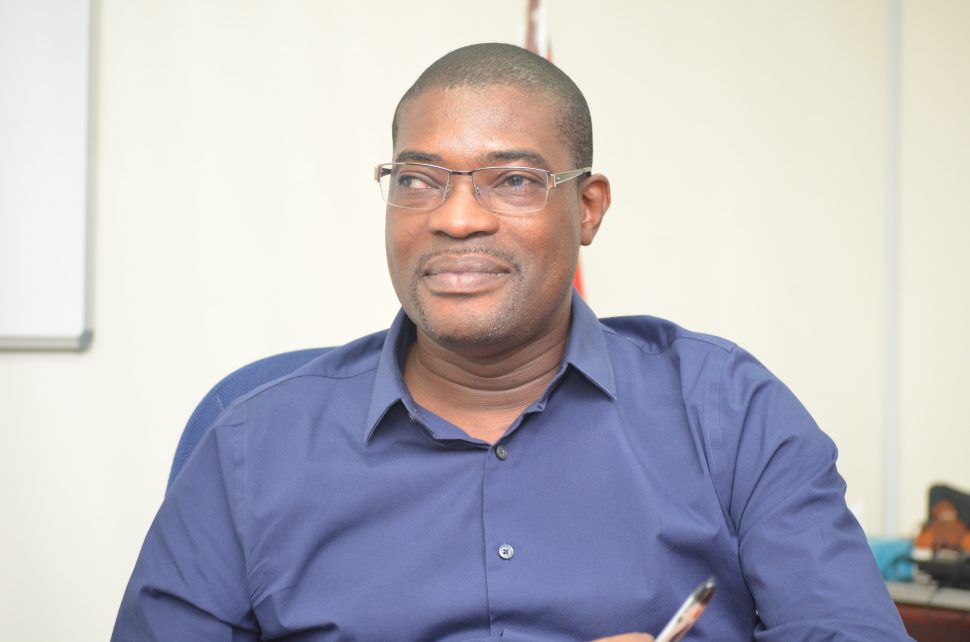Public Infrastructure Minister David Patterson has submitted documents including a written statement to the Special Organised Crime Unit (SOCU) as part of the entity’s investigation into Cabinet’s award of a contract to Dutch firm LievenseCSO for a feasibility study for a new bridge over the Demerara River.
It is unclear when this information was submitted. A source close to the case yesterday informed that in keeping with a request made by Opposition Chief Whip Gail Teixeira, Legal Advisor to the police, retired Justice, Claudette Singh has given certain directions which are currently being pursued. The submission of the documents is in keeping with those directions, this newspaper was told.
Though Opposition Leader Bharrat Jagdeo said on Monday that he was informed that the minister and other cabinet members would be invited to SOCU’s Headquarters for questioning, there is no definitive word as to when this is likely to happen.
Efforts to contact Patterson yesterday were futile. Stabroek News has since been informed that he is abroad and would be returning in a few weeks.
In a request made to SOCU Head Sydney James in August, Teixeira had urged that there be a comprehensive investigation, with a view to instituting criminal charges against Patterson.
The Public Procurement Commission (PPC) found that the Ministry of Public Infrastructure (MPI) breached the country’s procurement laws in the single-sourcing of the contract to the Dutch company.
The PPC, in its findings, said MPI did not place any advertisement for retendering the project, there was no evidence that any restricted procurement process was undertaken for the consultancy and there was no evidence in the records of the National Procurement and Tender Administration Board (NPTAB) of a request made by MPI to approve a single-source award.
The PPC said an examination of records relating to the tender and discussions with the relevant officials indicate that “the procurement procedure used to select LievenseCSO to execute the contract did not meet the requirements of any of the methods described in the Procurement Act.”
In her letter to James, Teixeira had noted that on September 18th, 2017, she wrote the PPC with regards to concerns that the procurement laws had been violated through the award of the contract and sought an investigation.
She noted that in a letter, dated August 2nd, 2018, the PPC sent her the report of its investigation with the findings, conclusions and recommendation, which she attached. “Due to the seriousness of their findings and the gross violations of the Procurement Act, with particular reference to the role of the Minister of Public Infrastructure in violating the Procurement Act and the most recent Code of Conduct as outlined in the Integrity Commission, Act, I hereby call on the SOCU to take action as required under the law,” she stated.
There is no procedure that defines how a procuring entity should deal with “unsolicited proposals,” such as the one reportedly received from LievenseCSO, the PPC had said.
While Cabinet has the right to review all procurements exceeding $15 million based on a streamlined tender evaluation report adopted by the NPTAB, the PPC said there is no evidence that the report to Cabinet was prepared by NPTAB but submitted by Patterson directly to Cabinet, which was a breach of the Procurement Act.
“The Procurement Act and Regulations make no provision for the Minister of Public Infrastructure to take a procurement request directly to Cabinet for approval of award of a contract,” the PPC said.
MPI on August 13th defended the single-sourcing, citing what it said were time constraints surrounding the need to complete the new bridge and the fact that Cabinet had been fully involved in the decision to hire LievenseCSO.
“MPI reiterates that lengthy procurement procedures were faithfully followed which did not yield suitable results. Having thereafter received a proposal which satisfied the government’s requirements for this project of national importance and given the relevant time constraints, it was felt that it was in Guyana’s interest to take advantage of the proposal. It is for this and other stated reasons that Cabinet’s approval was sought,” it said in a statement.





